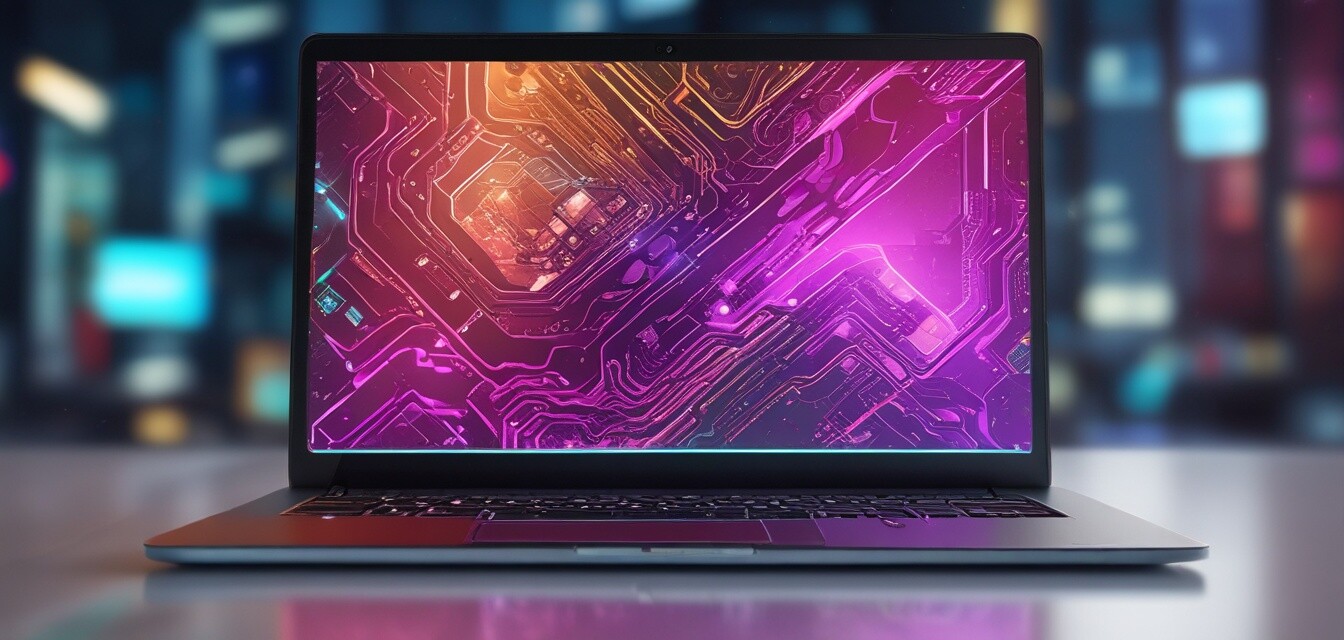
Predicted Trends in Laptop Displays for 2025
Key Takeaways
- Resolution improvements will continue, with 8K becoming more mainstream.
- OLED and Mini-LED technology will dominate the market.
- New screen aspect ratios will cater to diverse user needs.
- High refresh rates will enhance gaming and productivity.
- More eco-friendly materials will be used in display manufacturing.
The world of laptop displays is evolving rapidly, driven by technological advancements and consumer demands. As we approach 2025, several trends are predicted to transform the way we experience visuals on laptops. In this article, we'll explore the anticipated developments in laptop display technology, including resolution advancements, screen types, and innovative features that are set to enhance our viewing experience.
1. Resolution advancements
One of the most significant trends we expect to see in laptop displays is the move towards higher resolutions. In recent years, we've seen a shift from Full HD (1920 x 1080) to 4K (3840 x 2160) resolution becoming more common. However, by 2025, 8K resolution (7680 x 4320) is anticipated to gain momentum. With an incredible pixel density, 8K displays will provide stunning clarity and detail, ideal for graphic professionals and enthusiastic consumers alike.
| Resolution | Pixel Count | Ideal Users |
|---|---|---|
| Full HD | 2.1 million | General consumers |
| 4K | 8.3 million | Photographers, videographers |
| 8K | 33.2 million | Graphic designers, gamers |
2. Display technology improvements
In addition to resolution advancements, we can expect significant improvements in display technology. Here are the two most prominent technologies that are likely to dominate:
- OLED Technology: Organic Light Emitting Diodes are known for producing vibrant colors and deep blacks. By 2025, we anticipate OLED displays becoming more affordable, making them accessible to a larger audience.
- Mini-LED Technology: This technology enhances the traditional LED backlights by using smaller diodes, leading to better control over brightness and contrast. It is expected that Mini-LED will be a popular choice for high-end laptops.
3. Innovative screen types
As we move forward, laptop manufacturers will likely explore new screen types catering to different user preferences. Some of the emerging screen types anticipated by 2025 include:
- Foldable Displays: This technology allows for portable, multi-functional laptops that can adapt to the user's needs—whether as a tablet or a conventional laptop.
- Transparent Displays: Imagine a screen that can display content while allowing visibility through it! Transparent displays could revolutionize the way we use laptops, integrating augmented reality experiences.
4. Aspect ratios and user experience
Aspect ratios are crucial for enhancing productivity and user experience. Traditionally, most laptops adopted a 16:9 aspect ratio. However, as we advance, we’re seeing a shift towards more varied ratios:
| Aspect Ratio | Uses |
|---|---|
| 16:9 | General multimedia consumption |
| 16:10 | Enhanced productivity, coding |
| 3:2 | Design and content creation |
5. High refresh rates for improved gaming
The gaming community continues to push for better performance in laptops, which has led to the increasing importance of refresh rates. With the standard being around 60Hz, we anticipate many laptops in 2025 to offer high refresh rates of 120Hz or even 240Hz. This advancement provides smoother gameplay and a more immersive experience for gamers.
6. Eco-friendly production materials
As sustainability becomes a global priority, manufacturers are working towards using more eco-friendly materials in production. In 2025, it’s likely we will see an increase in the utilization of recyclable materials in display production. This shift will not only minimize the carbon footprint but will also appeal to environmentally conscious consumers.
Pros
- Enhanced clarity and detail with high resolution.
- Improved color accuracy with OLED screens.
- Innovative screen types provide flexibility and usability.
- High refresh rates improve gaming experiences.
- Eco-friendly materials enhance sustainability.
Cons
- High cost of advanced display technologies.
- Potential compatibility issues with older software.
- Higher power consumption for certain display types.
Conclusion
In conclusion, the laptop display landscape is set to change dramatically by 2025, with resolution advancements, improved technologies, innovative screen types, and a greater focus on environmental sustainability. As these trends unfold, consumers can expect to enjoy richer visual experiences that cater to their unique needs and preferences. We encourage you to stay updated on these developments and explore how they can enhance your digital lifestyle.
To learn more about laptop and PC trends, visit our News and Trends section. For buying guides on different categories, check out Buying Guides to make informed decisions when upgrading your hardware.